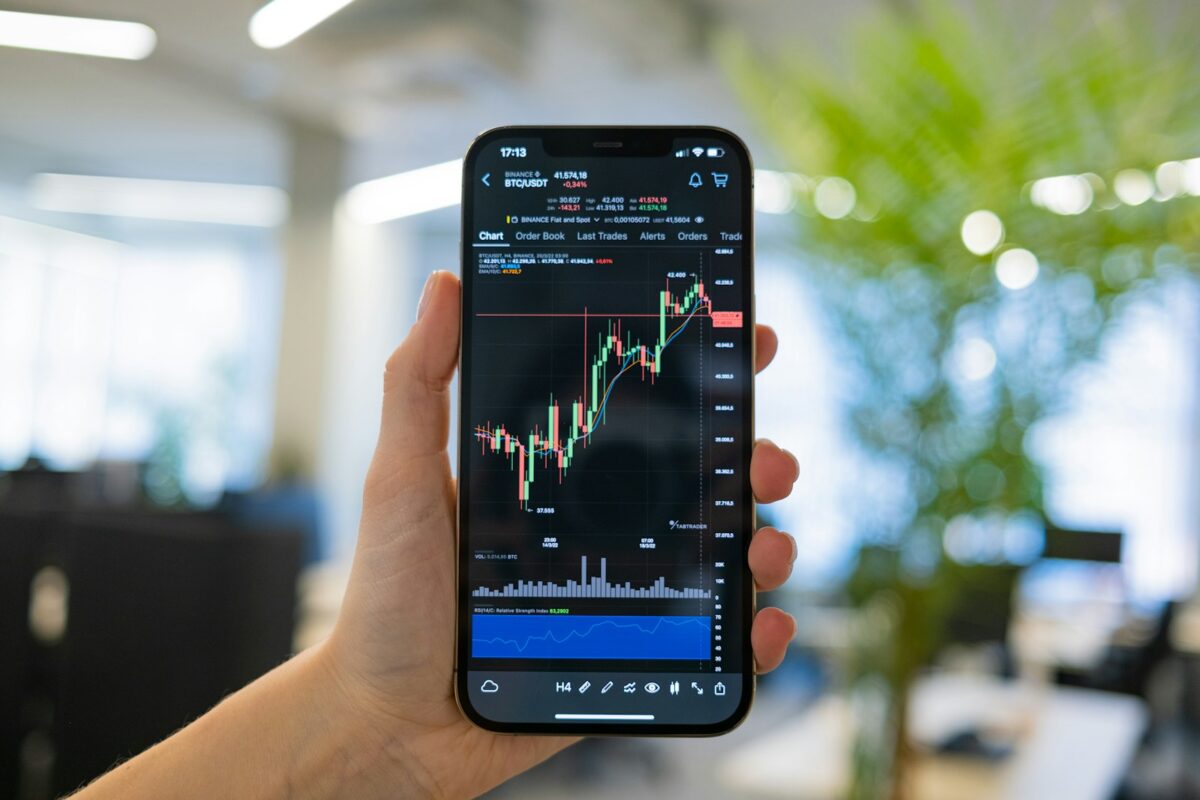
Crypto investment communities

Engaging in targeted groups dedicated to digital asset allocation offers immediate access to focused discussion, practical insights, and diverse perspectives. These virtual platforms accelerate learning by presenting real-world case studies, trading strategies, and technical analyses shared by experienced participants. Active involvement promotes a feedback loop where hypotheses about market behavior can be tested collaboratively.
Local meetups complement online forums by providing face-to-face networking opportunities and situational support. Such gatherings enhance trust-building and enable hands-on workshops that deepen understanding beyond textual exchanges. Combining local interaction with global digital hubs creates a multi-dimensional environment conducive to continuous improvement.
Forums specializing in these topics serve as repositories of collective knowledge, cataloging evolving trends and experimental approaches. Structured threads facilitate stepwise investigation of complex mechanisms behind token valuation, security protocols, and portfolio diversification. This systematic discourse equips members with critical thinking skills necessary for navigating uncertainties inherent in speculative markets.
Crypto Investment Communities Getting Started
Joining specialized networks focused on digital asset allocation requires active participation in local and online forums where detailed discussions unfold around project fundamentals, tokenomics, and security protocols. Engaging with regional groups allows participants to assess market sentiment grounded in their specific regulatory environments and socio-economic contexts. These interactions provide a foundation for informed decision-making through shared experiences and case studies reflecting diverse geographic perspectives.
Online platforms host extensive repositories of technical analyses, whitepaper reviews, and smart contract audits that serve as critical learning resources. Structured conversations within these spaces often revolve around evaluating consensus algorithms, scalability solutions, and interoperability challenges. Such thematic focus enhances understanding beyond surface-level speculation by dissecting core blockchain mechanics directly impacting asset valuation.
Effective Strategies for Networking and Knowledge Acquisition
Developing expertise benefits from systematic involvement in targeted discussion groups emphasizing empirical data evaluation rather than anecdotal insights. Joining decentralized autonomous organizations (DAOs) or protocol-specific channels encourages collaborative investigation of governance models and token utility frameworks. Peer-to-peer exchanges facilitate the cross-pollination of ideas essential for identifying emerging trends supported by quantifiable metrics.
- Local meetups: Provide real-time debates on regulatory shifts affecting compliance and tax implications relevant to participants’ jurisdictions.
- Specialized forums: Offer archives with chronological documentation of project development milestones enabling retrospective performance analysis.
- Webinars and workshops: Present live demonstrations of wallet security practices, decentralized finance mechanisms, and portfolio diversification techniques anchored in blockchain theory.
Regularly consulting verified data sources such as block explorers, transaction volume trackers, and liquidity pool statistics enriches community discussions with objective evidence. This practice cultivates critical thinking by challenging hypotheses against verifiable outcomes rather than speculative assertions. Experimentation within controlled environments–like testnets–can be encouraged to validate theoretical investment approaches practically.
A recommended pathway includes starting with foundational topics such as cryptographic primitives underpinning asset security before progressing towards complex constructs like layer-two scaling solutions or zero-knowledge proofs. Structured curricula designed by experienced analysts guide newcomers through incremental knowledge stages, reducing cognitive overload while promoting analytical confidence necessary for autonomous evaluation.
The synergy between localized engagement and global online collaboration forms a comprehensive ecosystem supporting continuous learning and strategic networking. By integrating multi-source information streams into iterative assessment cycles, participants can construct robust portfolios aligned with evolving technological innovations and market dynamics documented in peer-reviewed research and protocol update logs.
Choosing Trusted Community Platforms
Reliable platforms for discussion and networking in blockchain asset allocation play a pivotal role in informed decision-making. Prioritizing groups with transparent moderation policies and verified member credentials enhances the quality of exchanges and reduces exposure to misinformation. Platforms that incorporate multi-layered authentication systems and real-time monitoring tools effectively mitigate risks associated with fraudulent actors.
Evaluating online hubs requires attention to their structural design supporting dynamic interaction formats, such as threaded forums, live chats, and decentralized governance models. Local meetups integrated within digital frameworks offer hybrid opportunities for direct engagement, which empirical studies correlate with higher retention of critical financial knowledge among participants. These mixed environments foster a robust support network facilitating both technical inquiry and practical strategy refinement.
Assessing Platform Credibility Through Technical Indicators
Indicators like platform uptime statistics, encryption standards (e.g., end-to-end TLS protocols), and open-source code availability serve as objective metrics in assessing the trustworthiness of networking sites focused on blockchain asset management. Case studies from established forums demonstrate that communities employing cryptographic verification methods for user identities significantly reduce incidences of phishing scams and social engineering attempts.
Furthermore, data-driven evaluation of content quality can be performed by analyzing post engagement metrics alongside expert participation rates. Platforms featuring active moderation by credentialed analysts facilitate more accurate dissemination of market trends and technical analysis methodologies. Such environments encourage constructive dialogue rather than speculative conjecture, improving overall educational value.
Integration of advanced analytics tools within group interfaces allows members to track sentiment shifts and transaction volumes correlated with community discussions. Experimental implementations have shown that this feedback loop aids in recognizing emerging patterns ahead of broader market movements, providing early signals valuable for portfolio adjustments. Combining these insights with peer support mechanisms creates a fertile ground for continuous learning.
Finally, prioritizing venues that balance global reach with localized subgroups enables nuanced exploration of regulatory impacts across jurisdictions. Comparative studies indicate that participants involved in geographically-focused clusters exhibit enhanced awareness of compliance nuances affecting asset flows. This dual structure empowers users to contextualize information within both macroeconomic frameworks and immediate social contexts, reinforcing strategic acumen.
Evaluating Member Credibility
Assessing the reliability of participants within local and online groups dedicated to digital asset allocation requires precise criteria. Verification of a member’s activity history in specialized forums provides measurable insight into their credibility. Metrics such as consistency in contribution, depth of technical discussion, and responsiveness to complex queries serve as quantitative indicators. For example, participants demonstrating sustained engagement over multiple discussion threads with evidence-based arguments tend to hold higher trustworthiness scores.
Cross-referencing member profiles across various networking platforms and discussion boards enhances verification accuracy. Integration of blockchain-based identity solutions can further authenticate user participation by linking on-chain transaction histories with forum accounts. This approach allows for objective validation beyond self-reported credentials, reducing misinformation risks within groups focused on portfolio diversification strategies.
Technical Methods for Credibility Assessment
A systematic methodology incorporates both qualitative and quantitative data points from community interactions. One effective practice involves analyzing linguistic patterns and sentiment in posts using natural language processing (NLP) tools. These can detect expertise levels by evaluating terminology usage frequency and contextual relevance to niche topics like tokenomics or protocol updates. Additionally, network analysis techniques map connections between members, identifying central figures whose advice impacts group decision-making dynamics.
Case studies reveal that members actively contributing to local meetups or workshops often bring practical insights absent in purely online dialogues. Such hybrid interaction models strengthen learning ecosystems by combining theoretical knowledge with hands-on experience. Researchers recommend fostering environments where newcomers validate information through peer-reviewed contributions before adopting strategies suggested by high-profile participants within investment communities.
Participating Without Risks
To minimize exposure while engaging in blockchain-related financial activities, prioritize active involvement in verified online forums and localized discussion groups. These platforms offer transparent peer-to-peer communication where participants exchange insights based on direct experience and empirical data. By analyzing historical performance metrics shared within these settings, newcomers can identify patterns of reliability and avoid ventures with questionable credibility.
Engaging with regional networking clusters enhances understanding of jurisdiction-specific regulations and market behavior, which directly affect asset stability and transactional security. Localized support networks often provide tailored guidance on compliance issues, thus reducing inadvertent legal or procedural risks. This geographic focus also facilitates face-to-face interactions that build trust through tangible verification of expertise.
Leveraging Technical Forums for Risk Mitigation
Active participation in specialized technical forums allows access to detailed protocol analyses and vulnerability reports authored by developers and independent auditors. These discussions frequently include step-by-step breakdowns of smart contract functionalities and upgrade mechanisms, enabling participants to assess the robustness of underlying infrastructure before allocation of resources. Moreover, peer reviews within such forums act as early warning systems against emerging threats like code exploits or fraudulent schemes.
Investment-oriented groups that integrate algorithmic backtesting results provide an additional layer of scrutiny. For example, some communities publish comparative studies showcasing the efficacy of various trading bots under different market conditions. Engaging with these data-driven evaluations empowers individuals to make decisions grounded in quantitative evidence rather than speculative trends.
The architecture of decentralized networks often involves complex consensus algorithms whose nuances are dissected thoroughly within expert circles online. Understanding these technical foundations can prevent overreliance on superficial indicators such as price volatility alone. Instead, participants learn to interpret network health metrics–such as hash rate distribution or node uptime statistics–which correlate strongly with systemic integrity and reduce susceptibility to manipulation.
Structured collaboration through moderated groups encourages iterative hypothesis testing regarding new protocols or asset classes. Experimental approaches include simulated transactions using testnets before actual engagement, allowing users to observe potential failure points without financial loss. This methodical practice cultivates critical thinking skills essential for navigating novel technological environments safely while maintaining a supportive learning atmosphere.
Leveraging Community Insights
Integrating knowledge from online and local discussion groups significantly enhances decision-making frameworks for blockchain asset allocation. Active participation in specialized forums enables continuous learning through the exchange of technical analyses, real-time protocol updates, and peer-driven validation of emerging trends.
The synergy created by networking within these clusters provides robust support systems that accelerate understanding of complex mechanisms such as layer-2 scalability solutions or cross-chain interoperability protocols. This collaborative environment allows participants to test hypotheses collectively, refine risk models, and identify arbitrage opportunities with greater precision.
Future Directions and Technical Implications
- Data-Driven Group Dynamics: Advanced sentiment analysis tools applied to forum discussions can uncover micro-trends ahead of market shifts, enabling more granular timing strategies.
- Hybrid Learning Models: Combining asynchronous online discourse with synchronous local meetups fosters experiential learning through workshops on smart contract auditing or decentralized governance frameworks.
- Decentralized Support Networks: Emerging platforms utilizing decentralized identifiers (DIDs) will enhance trustworthiness within peer groups, reducing reliance on centralized moderators and improving collective vetting processes.
- Algorithmic Collaboration: Machine learning integrations that parse community-generated data streams can automate detection of novel investment theses or flag anomalous behavior indicative of systemic risks.
The evolution of these interactive ecosystems is poised to transform not only strategy formulation but also the architecture of knowledge dissemination itself. By leveraging multi-layered communication channels–ranging from encrypted chat rooms focusing on protocol vulnerabilities to local seminars dissecting tokenomics–participants cultivate a nuanced comprehension otherwise unattainable through isolated research.
This trajectory invites further exploration into how distributed consensus within user networks might inform adaptive portfolio construction algorithms, paving the way for more resilient and responsive asset management methodologies rooted in collective intelligence.


